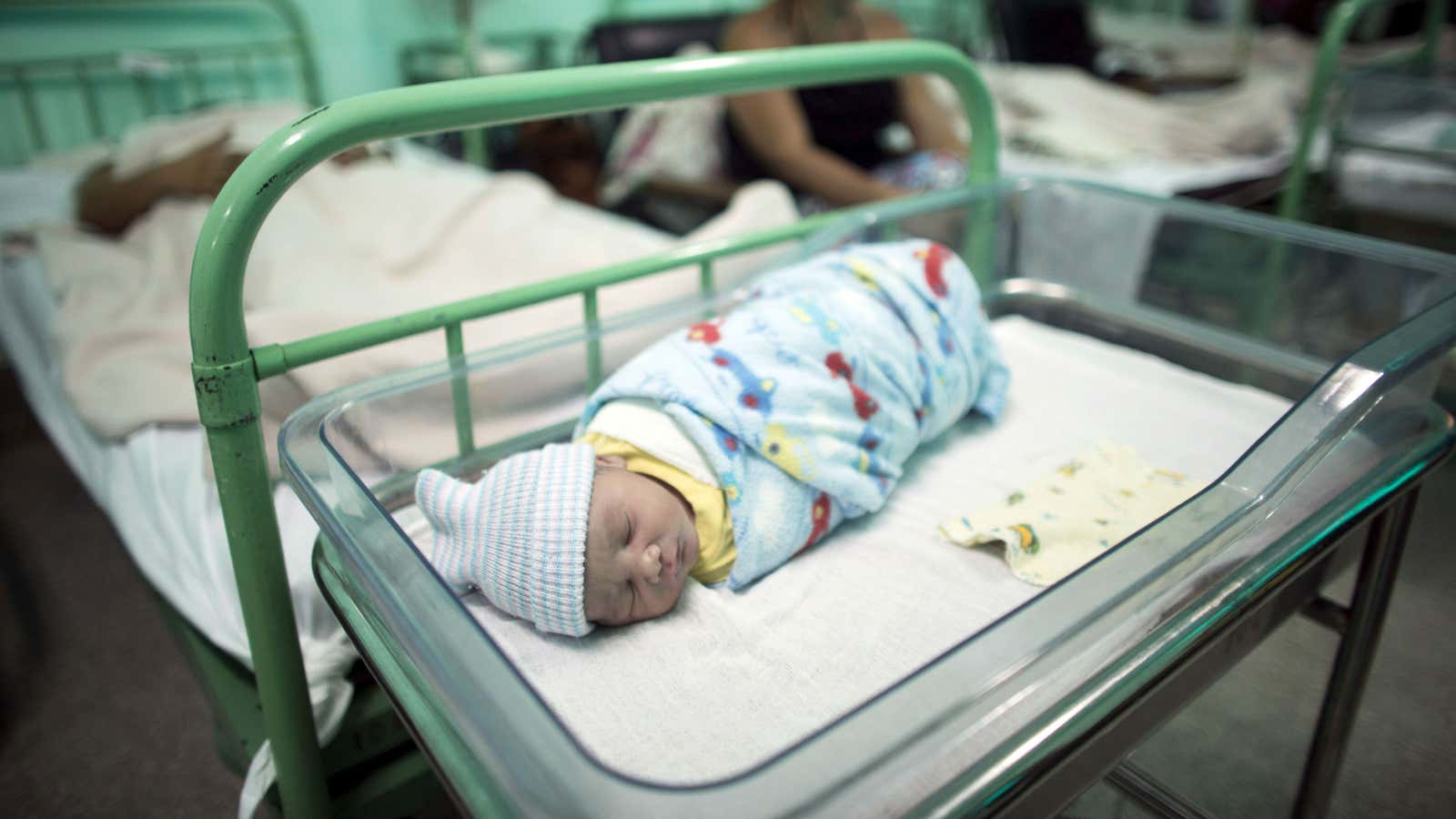The World Health Organization announced June 30 that Cuba has become the first country in the world to stamp out transmission of HIV and syphilis from a mother to her child.
“Eliminating transmission of a virus is one of the greatest public health achievements possible,” said Margaret Chan, WHO’s director general, in a statement. “This is a major victory in our long fight against HIV and sexually transmitted infections, and an important step towards having an AIDS-free generation.”
WHO defines “elimination” of transmission as “reduction of transmission to such a low level that it no longer constitutes a public health problem.” A panel of international health experts visited Cuba in March and concluded that the country met the standards required for validation. In 2013, only two babies were born with HIV and five with congenital syphilis.
Around the world, about 1.4 million women with HIV become pregnant every year. If left untreated, there’s a 15-45% chance that they transmit the virus to their child during pregnancy, delivery, or breastfeeding, according to WHO. But that risk can drop to as low as 1% if both mother and child are given antiretroviral medication.
Over 240,000 children worldwide are born with HIV every year, but that number has almost halved since 2009, when 400,000 children were born with the virus. WHO’s target is less than 40,000 new child infections at the end of 2015.
Starting in 2010, WHO partnered with Cuba (as well as with other countries in Latin America) as part of a push to end HIV transmission. WHO helped the country ensure all pregnant women were given early access to prenatal care, HIV and syphilis testing, and then treatment, if necessary.
But Cubans have one advantage that certainly helped: The country provides basic healthcare to its citizens free of charge.
Former UN secretary general Kofi Annan once emphatically complimented Cuba’s universal healthcare system, saying, “Cuba should be the envy of many other nations.” Thousands of medical tourists travel to Cuba each year (paywall) for surgeries and other medical care. Cuba also has one of the lowest HIV rates in the world.
One pervasive problem, though, is that doctors—like nearly all other workers in Cuba—earn an extremely low wage. Healthcare workers in Cuba make on average about $30 per month.
According to the New York Times, Cuba was the first to request (paywall) certification from WHO. Since then, Bulgaria, Moldova, Turkmenistan and Thailand have all requested it as well.




